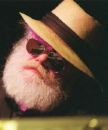 When long-suffering Spain defeated Germany yesterday to qualify for its first-ever World Cup final, you could point to the usual sports pundit’s list of factors to explain the 2008 European Cup champion’s victory, from Spain’s superbly choreographed short-passing game to the offensive wizardry of the brilliant midfielder Xavi. But since none of these reasons would allow me to go off on a musical tangent, I’ll focus instead on two acts of divine intervention.
When long-suffering Spain defeated Germany yesterday to qualify for its first-ever World Cup final, you could point to the usual sports pundit’s list of factors to explain the 2008 European Cup champion’s victory, from Spain’s superbly choreographed short-passing game to the offensive wizardry of the brilliant midfielder Xavi. But since none of these reasons would allow me to go off on a musical tangent, I’ll focus instead on two acts of divine intervention.
First, let’s talk hair. Xavi’s Barça teammate Carles Puyol scored the winning goal, and as the late Warren Zevon might have noted, his hair was perfect. Puyol has a huge head of rock star hair that could have seen him waking up with Peter Frampton’s wine glass in his hand in 1976, sparking the dubious hair-metal craze in 1986, skateboarding with Pearl Jam in 1996, or opening for My Morning Jacket in 2006. More locally, Puyol’s hair would have easily qualified him to substitute for the lead singer in Barcelona band Sopa de Cabra (see the video below). To be sure, Puyol can’t match the legendary locks of Colombian soccer star Carlos Valderrama. But at the decisive moment in yesterday’s match, Puyol’s flowing tresses gave him an unusually wide target to receive the ball on Xavi’s corner kick and connect for the winning header. By contrast, close-cropped German striker Miroslav Klose, who might as well have been a member of Kraftwerk, stood nearby in disbelief.
In contrast to Argentina’s celebrated Hand of God goal 24 years ago, this one was perfectly legal. Still, it’s clear that Spain won by the hair of God, which can’t bode well for the follicly challenged Netherlands team that will face Spain in the final. In Spain’s honor, here’s an impromptu list of songs about hair:
Ben Vaughn Combo, “Wrong Haircut”
Nina Simone, “Black is the Color of My True Love’s Hair”
Mongo Santamaria, “Afro Blue”
Calexico, “Hair Like Spanish Moss”
Danney Ball, “Let’s Give the Devil a Bad Hair Day”
Cowsills, “Hair”
Morrissey, “Hairdresser on Fire”
Pavement, “Cut Your Hair”
Beck, “Devil’s Haircut”
Blake Miller, “Long Hair”
Captain Beefheart, “Hair Pie, Bake 1 and 2”
Rogers and Hammerstein, “I’m Gonna Wash that Man Right Outta My Hair”
But wait, there’s more. Spain’s victory over Germany was also preordained by a precocious cephalopod. British-born Paul, who lives at an aquarium in Oberhausen, Germany, is the world’s most famous psychic Octopus. He has stunned the world soccer community by successfully predicting the outcome of 10 of 12 matches in which Germany has been involved dating back to 2008, including all six of its World Cup matches this year. Not everyone has appreciated the brilliance of the Oracle of Oberhausen. The Argentine newspaper El Dia unwisely suggested that he become the star of a paella recipe, and outraged German chefs have now followed suit. By contrast, Spanish chef José Andrés has removed octopus from the menu at all his restaurants. Paul has yet to weigh in on the outcome of the final match. Until then, the only thing I’m sure of is that neither side will be eating calamari or listening to the songs of bald musicians.
Sopa de Cabra, “Sents”
Mongo Santamaria, “Afro Blue”
Beck, “Devil’s Haircut”
Beatles, “Octopus’s Garden”
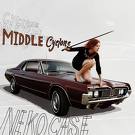
 Despite a lifelong obsession with politics and music, I only really learned about
Despite a lifelong obsession with politics and music, I only really learned about 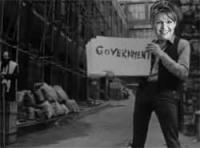

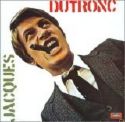


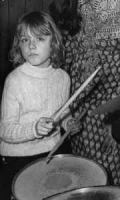 I’m a walking bag of contradictions. In my mind’s eye, I am free of bigotry, but as soon as someone I don’t know walks in the room, I immediately start sizing up the music they listen to, based upon their appearance and wardrobe alone. Typically, the set of associations goes something like this:
I’m a walking bag of contradictions. In my mind’s eye, I am free of bigotry, but as soon as someone I don’t know walks in the room, I immediately start sizing up the music they listen to, based upon their appearance and wardrobe alone. Typically, the set of associations goes something like this: But metal? That would bring back memories of the epic
But metal? That would bring back memories of the epic  The noble quest of Pennsylvania’s
The noble quest of Pennsylvania’s 
